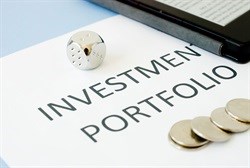Vietnam offers a compelling investment opportunity for the next decade. Home to 92 million people, the Vietnam population boasts a 97% literacy rate.
Vietnam is a society in rapid transition - the hundreds of thousands of scooters will soon be replaced by cars, the thousands of mom and pop stores will be replaced by modern shops while the dense ramshackle low rises are being replaced by skyscrapers.
Only 38% of Vietnam's population is urbanised. Those living in urban areas are expected to grow from 33 to 52 million over the next ten years.
The secular story is aided by a literate hard working and ambitious population which has been held back until recently by the shackles of communism. The government is now slowly but steadily deregulating the economy.
According to a recent report by the Boston Consulting Group, Vietnam is a powerful consumer growth story, with the 12 million people in the middle to affluent class likely to nearly triple to 33 million by 2020.
Educated labour force
Currently, the country has a relatively cheap, albeit educated, labour force. Annual per capita income is expected to double from the current $1,550 to $3,400 by 2020. Comparing that to China at $6,000 and Singapore at $70,000, one gets a sense of the potential. In the last six months alone, more than 37,000 businesses were started in Vietnam.
Being somewhat 'off the radar' and seemingly a frontier rather than emerging market, it is not well known that over the last 25 years, Vietnam's annual GDP growth (6,9%) is second only to China (10%) and has been higher than India, Malaysia, Indonesia, Thailand, Philippines, Brazil and Russia. More importantly, we believe during the next decade Vietnam will overtake China to become the highest GDP growth country in Asia.
A clear indication of the expected continued growth and development in Vietnam, is Samsung and LG's decisions to build their largest global manufacturing plants in the country, when they had carte blanche to locate in any other global destination.
There are a number of fund options that receive continual scrutiny on a meritocracy basis. When AlphaWealth makes its investment decisions, we also take into consideration managers we know and trust, alignment of interests, alternative skill-based fund choices and funds with full transparency.
Different economic cycle
Vietnam is also in a different stage of its economic cycle to the rest of the world. It had a major boom up to 2008 which resulted in inflation getting out of control in 2008 (23%) and again in 2011 (19%). The central bank used high interest rates to crush the inflation in 2011, causing property prices to plummet by 40% by mid 2013. Inflation is back down to 5.5% with interest rates down to similar levels.
After a hiatus during the crisis, the government is making the necessary structural changes to deregulate the economy and corporate tax rates will decrease from 25% to 22% this year.
Foreign direct investment is picking up strongly as companies choose Vietnam as their preferred location for their new production plants, given Vietnam's highly productive and cheap labour combined with reasonably good infrastructure (especially compared to India). These exports will ensure that Vietnam runs a structural balance of payments surplus, thereby under-pinning the currency.





























